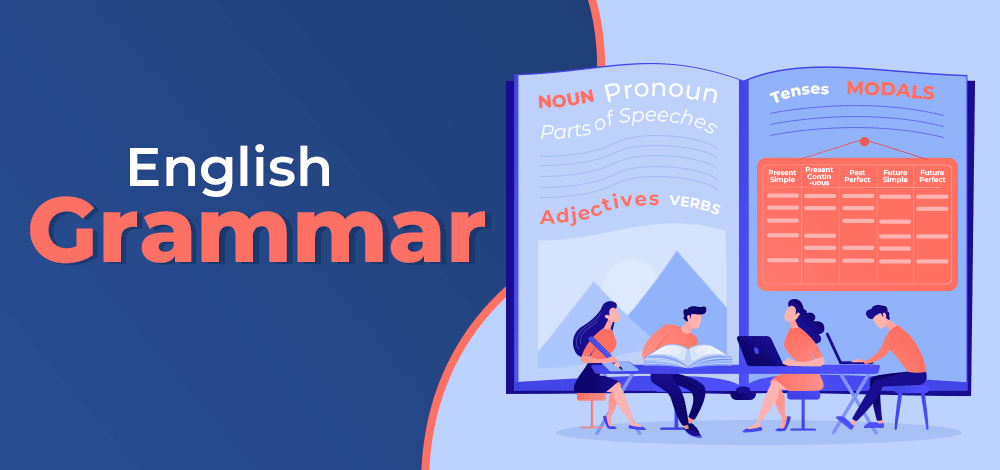50 Points Related to Important English Grammar for All Competitive Exam
- Parts of Speech: Understand the basic parts of speech in Important English grammar such as nouns, verbs, adjectives, adverbs, pronouns, prepositions, conjunctions, and interjections.
- Subject-Verb Agreement: Ensure that the subject and verb agree in number and person.
- Pronoun-Antecedent Agreement: Pronouns must agree in number, gender, and person with their antecedents.
- Tenses: Master the various tenses in English including past, present, and future, as well as their continuous, perfect, and perfect continuous forms.
- Active and Passive Voice: Understand the difference between active and passive voice and know when to use each.
- Modifiers: Learn about adjectives and adverbs as modifiers and how they function in sentences.
- Articles: Understand the usage of articles (a, an, the) and when to use them.
- Conjunctions: Know the different types of conjunctions (coordinating, subordinating, correlative) and how they connect words, phrases, and clauses.
- Prepositions: Master the correct usage of prepositions to show relationships between words in a sentence.
- Relative Clauses: Understand how relative pronouns (who, whom, whose, which, that) introduce relative clauses and modify nouns.
- Comparatives and Superlatives: Learn the rules for forming comparatives and superlatives of adjectives and adverbs.
- Conditional Sentences: Understand the structure and usage of conditional sentences (zero, first, second, third conditionals).
- Direct and Indirect Speech: Know how to change direct speech into indirect speech and vice versa.
- Gerunds and Infinitives: Understand the usage of gerunds and infinitives as noun forms.
- Phrasal Verbs: Learn about phrasal verbs and how they consist of a verb and one or more particles.
- Modal Verbs: Know the various modal verbs (can, could, may, might, must, shall, should, will, would) and their uses.
- Word Order: Understand the standard word order in English sentences (subject-verb-object).
- Sentence Types: Recognize the different types of sentences (declarative, interrogative, imperative, exclamatory).
- Subject and Object Pronouns: Know the difference between subject and object pronouns and when to use each.
- Parallelism: Ensure parallel structure in sentences, especially in lists and comparisons.
- Phrases and Clauses: Understand the difference between phrases and clauses and their roles in sentences.
- Sentence Fragments and Run-Ons: Avoid sentence fragments and run-on sentences by understanding proper sentence structure.
- Ellipsis: Understand when and how to use ellipsis (…) to omit words from a sentence.
- Capitalization: Know the rules for capitalizing proper nouns, the first word of a sentence, and other specific cases.
- Punctuation Marks: Master the usage of punctuation marks including periods, commas, semicolons, colons, apostrophes, quotation marks, question marks, and exclamation marks is also a part of Important English Grammar.
- Subject Complements: Understand predicate nominatives and predicate adjectives as subject complements.
- Determiners: Learn about determiners (articles, demonstratives, possessives, quantifiers) and their function in noun phrases is also a part of important English Grammar.
- Coordinating and Subordinating Conjunctions: Know the difference between coordinating conjunctions (and, but, or, nor, for, yet, so) and subordinating conjunctions.
- Sentence Patterns: Understand different sentence patterns such as S-V-O, S-V-IO-DO, S-V-DO-OC, etc.
- Conditional Clauses: Master the structure and usage of conditional clauses.
- Appositives: Know how appositives rename or further identify nouns and noun phrases.
- Redundancy: Avoid redundancy in writing by eliminating unnecessary words or phrases.
- Subject-Verb Inversion: Understand when subject-verb inversion occurs in questions and other sentence structures.
- Subject-Verb-Object-Complement: Recognize the basic structure of sentences with complements.
- Prepositional Phrases: Understand the structure and function of prepositional phrases in sentences.
- Sentence Transformation: Be able to transform sentences using various grammatical structures.
- Conjunction Reduction: Know when and how to reduce conjunctions in informal speech and writing.
- Double Negatives: Avoid double negatives for clarity and correctness in writing.
- Sentence Stress and Intonation: Understand how stress and intonation affect the meaning and interpretation of sentences.
- Inflection: Recognize how inflectional endings change the form of words to indicate grammatical relationships.
- Subject-Verb Split: Avoid splitting the subject and verb with other words or phrases in a sentence.
- Hyphens: Know when to use hyphens in compound words and phrases.
- Idioms and Collocations: Familiarize yourself with common idiomatic expressions and collocations.
- Expletive Constructions: Understand expletive constructions and when to use them for emphasis.
- Parentheses and Brackets: Know when to use parentheses () and brackets [] for clarification or additional information.
- Euphemisms: Understand euphemisms and their use in polite or sensitive language is another part of Important English Grammar.
- Rephrasing: Practice rephrasing sentences to improve clarity and style.
- Subject-Verb Shift: Maintain consistency in subject-verb agreement, especially in longer sentences or paragraphs.
- Inversion for Emphasis: Know how to use inversion for emphasis or stylistic effect.
- Sentence Combining: Practice combining shorter sentences into longer, more complex sentences to vary sentence structure and improve fluency.

Mastering these points will greatly enhance your understanding and proficiency in the Important English grammar.

Pingback: Comprehensive Guide to RPF/RPSF Constable Recruitment